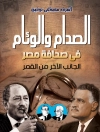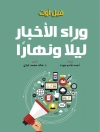Museums and archives all over the world digitize their collections and provide online access to heritage material. But what factors determine the content, structure and use of these online inventories? This book turns to India and Europe to answer this question. It explains how museums and archives envision, decide and conduct digitization and online dissemination. It also sheds light on born-digital, community-based archives, which have established themselves as new actors in the field. Based on anthropological fieldwork, the chapters in the book trace digital archives from technical advancements and postcolonial initiatives to programming alternatives, editing content, and active use of digital archives.
Daftar Isi
List of Figures
Acknowledgements
List of Abbreviations
Introduction
Chapter 1. Theorizing Digital Archives: Power, Access and New Order
Chapter 2. Deciding for Digital Archives: Improvement through Collection Management Systems
Chapter 3. Community-Based Digital Archives: Programming Alternatives
Chapter 4. Creating and Curating Digital Archives: Horizontal and Vertical Structures
Chapter 5. Using Digital Archives: Online Encounters, Stories of Impact and Postcolonial Agendas
Chapter 6. Digital Archives’ Objects: Law and Tangibility
Conclusion: Cultural Production in the Present with Reference to the Past and Directed at the Future
Index
Tentang Penulis
Katja Müller conducts research into digitization, museum studies, material culture and visual anthropology, as well as energy and environmental humanities. She is Heisenberg-Professor at Merseburg University of Applied Sciences.





